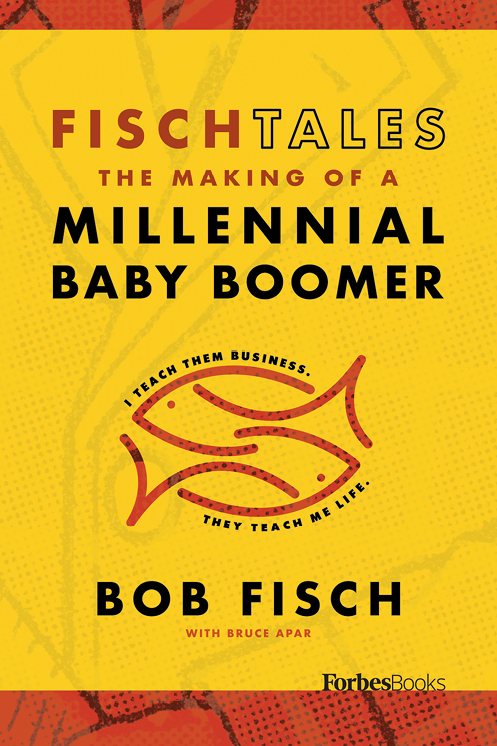- Home
- Media Kit
- Current Issue
- Past Issues
- Ad Specs-Submission
- Ad Print Settings
- Reprints (PDF)
- Photo Specifications (PDF)
- Contact Us

![]()
ONLINE

Fisch Tales
Editors’ Note
Bob Fisch is a retail visionary, mastermind innovator, disrupter, mentor to millennials and mentee. As founder and former CEO of rue21, Bob Fisch took the company from Chapter 11 to be worth more than a billion dollars while amassing the largest store count in America for a specialty apparel chain, with more than 1,200 locations coast to coast. He’s currently on the Board of Directors of the publicly-traded company Ollie’s Bargain Outlet. Previously, Fisch served as a member of the Board of Directors of the Children’s Place Retail Stores and served as President of Casual Corner Group. Now, Fisch is President of RNF Group, a consulting company focused on the assessment and evaluation of retail and other business enterprises, as well as providing mentoring services to existing management of these companies, a position he has held since January 2017.
How did your career in retailing evolve?
I’ve been in three different phases of retailing. I started off in department stores with Abraham & Straus, which not everybody knows, and actually it’s a good thing I don’t need a job since I’ve had very good jobs with companies that are no longer in existence. Abraham & Straus was the best at that time; it was like being with the Boston Celtics when Red Auerbach was the coach or the Los Angeles Lakers when Pat Riley was the coach.
I then went into specialty retail when I was the President of Casual Corner Group, and then went into private equity when I reformatted a company called Pennsylvania Fashions and changed it to rue21 working with my equity partners, Apax Partners, to make that business happen.
Is brick and mortar still relevant in retail today?
Brick and mortar stores are here to stay. The brick and mortar business accounts for between 85 and 90 percent of all businesses. It will diminish a little, but it’s not going away. What’s new is that retail is now a marriage of brick and mortar with technology. I think that’s really important. There are certain businesses that will completely rely on e-commerce, while for others like rue21, e-commerce only accounts for 10 percent of business. I think that you have to have an e-commerce component, but it is in combination with brick and mortar.
What was the key to rue21’s success?
I’m never afraid to take a stand or take a risk. I would take a risk even if it potentially meant I may not keep my job. With rue21, I took over a business that should have gone away, but because of my experience at Casual Corner and places like that, I saw that the value business could be a big opportunity.
I learned that the further you go from metropolitan areas, the less rent you pay, and you could do a lot of business in those markets with more profit. I found some of the biggest volumes were in markets where 20,000 to 40,000 people were living.
When I took over rue21, it was a diseased business and I reformatted it. I hired seven or eight key people that were working in big companies who either had a desire to move up a level or weren’t happy in their job.
I took the company into bankruptcy in 2002 and while we were in bankruptcy, we were still paying bonuses. We were renegotiating terms and getting discounts from people and within a little over a year we came out of it. From the time we went into bankruptcy, for 11 straight years and 45 straight quarters, we never missed an estimate as a high-growth company.
I had a vision to go after this value business and become a leader in it. We started building it and during the recession of 2008, when stores and companies were closing, we opened 100-plus stores a year. In 2009, I took the company public and in 2013, I took it private. We sold the business for over $1 billion and built it to 1,200-plus stores which became the largest specialty apparel retailer in store count in America.
It is all about leadership and being not afraid to take a risk, which is harder today. You have to hire the right people. When it comes down to it, it’s people, leadership, weaponized listening and mentoring talent.

What interested you in writing your new book, Fisch Tales: The Making of a Millennial Baby Boomer, and who is the book trying to reach?
The target audience for the book is millennial entrepreneurs and ageless baby boomers. I make a difference by giving back and helping people go further than they ever thought they could. I’m a real believer that millennials help make a difference in the business world. In my book, Fisch Tales: The Making of a Millennial Baby Boomer, there are “School of Fisch Lessons” that are actual practices, not theories, people can learn from for their success.
What do you tell young people about pursuing a career in retail today?
That is a great question. It depends where you go. You need to feel the pulse of retail today to know what the future may look like. It is critical to find mentors. People say I was lucky to have mentors. I wasn’t lucky, I searched people out and found them. You need to really push to listen to experienced, successful people about how to get ahead because the best is yet to come.![]()